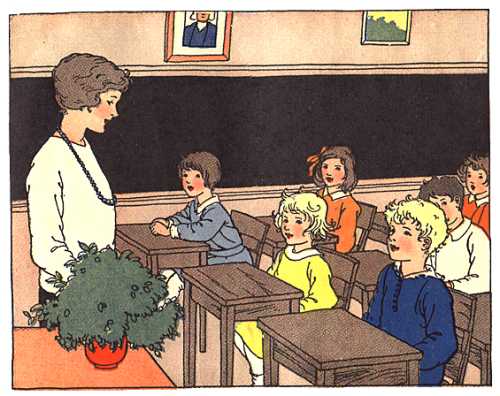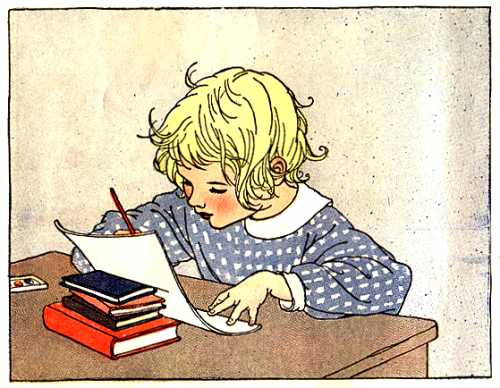Alabama attorneys can keep using them to attract clients, per a ruling of the state Supreme Court. [Tuscaloosa News]
For readers on Twitter
A reminder: if you’re on Twitter, the ever more popular micromessaging and social media service, you can follow me at this link. You can also follow Overlawyered itself; its account mostly consists of a “feed” (in which each new post on the site results in a message), but I’ve also been experimenting with putting some original material on it, mostly short items destined for future roundups. I’ve also got Twitter identities for Point of Law and for my Secular Right site, and those likewise are primarily but not exclusively feeds.
Most new Twitter users are at first bewildered by the special jargon and conventions, such as “RT” (retweet, for passalong items), scrunched URLs, @ replies, #hashtags, and so forth. You can find a quick introduction at this link. These days I monitor the #CPSIA hashtag in particular, and often learn of new developments there first.
CPSIA on the radio: WMJI Cleveland
 This morning I was a guest on Cleveland’s WMJI radio with popular morning hosts Lanigan and Malone. They’d heard through a listener about the kids’ motorbike ban, and we also discussed ballpoint pens and pre-1985 kids’ books, as well as the question of whether anyone in Congress reads the bills they pass.
This morning I was a guest on Cleveland’s WMJI radio with popular morning hosts Lanigan and Malone. They’d heard through a listener about the kids’ motorbike ban, and we also discussed ballpoint pens and pre-1985 kids’ books, as well as the question of whether anyone in Congress reads the bills they pass.
Blurbing of books possibly safe again (or not)
An update on the overreaching litigation of Dallas developer H. Walker Royall: “Prof. Richard Epstein Dismissed from Book-Blurb Libel Case, on Jurisdictional Grounds”. [Volokh, earlier here and here].
P.S. Commenter VMS points out that despite my choice of original headline, blurbing of books has by no means been made safe, since the judge dismissed Royall’s claim only on jurisdictional grounds that Epstein was not within the reach of the Texas courts. I’ve added to the post title accordingly.
Toward final victory against hooligan listeners!
Comrades of the recording industry! RIAA has overfulfilled glorious five-year lawsuit production plan! [Patrick/SSFC at Popehat]
CPSIA chronicles, March 3
- There’s new blogging on the fate of pre-1985 children’s books from book restorer and conservator Javamom, Jane Badger (iBookNet, U.K.), Dillon Hillas, Wellspring Creations, and Small-Leaved Shamrock.
 Deputy Headmistress continues to blog the book angle intensively, as does Valerie Jacobsen (read this post in particular). Note also the comment from Nancy Welliver on her February 11 post: “We are a used curriculum and book seller. We have removed 3,500 books from our website. … until recently publishers did not put printing dates in books, only copyright dates. So a book that is copyrighted 1976 may have been printed in 1988 and therefore legal to sell, So how do we know which are printed before and which after 1985? So we have removed all books for children with copyright date 1985 and before.” There’s also a page at cpsia-central (the Ning group) on books and libraries.
Deputy Headmistress continues to blog the book angle intensively, as does Valerie Jacobsen (read this post in particular). Note also the comment from Nancy Welliver on her February 11 post: “We are a used curriculum and book seller. We have removed 3,500 books from our website. … until recently publishers did not put printing dates in books, only copyright dates. So a book that is copyrighted 1976 may have been printed in 1988 and therefore legal to sell, So how do we know which are printed before and which after 1985? So we have removed all books for children with copyright date 1985 and before.” There’s also a page at cpsia-central (the Ning group) on books and libraries. - The law is also having a major impact on sellers of new children’s books, given that the only newer books presumed safe for legal purposes without testing are completely plain books with no embellishments or non-paper features. Don’t miss the letter at Wellspring Creations from “Jackie”, who identifies herself as the manager of the children’s book section at a Half Price Books store, part of a large chain that sells publisher’s remainders and overstocks as well as used books:
I have experienced the severity of this issue first-hand. … Initially, it didn’t seem like this would have much of an impact on the kids section, but as I went through my section pulling everything that was potentially harmful, I soon realized that this was going to decimate my section. My display tables were over halfway empty, and there were half-empty or completely empty shelves all throughout the section. … The kids cooking shelf went from being packed full to only having half a dozen books left, all because most of the cookbooks were spiral-bound with metal. …
The day that I had to get rid of all those books was one of the roughest days I’ve ever had at work. The kids section is my pride and joy, my baby, and I had to not only watch it get torn apart- I had to do it myself. It was heartbreaking.
The happy ending, if you want to call it that, is that eventually many or most of the new books are likely to return to the shelves after the chain puts them through testing — though it’s more likely to take such a step for a mass-selling branded item piled high on display tables than for a specialty cookbook expected to sell only in the dozens of copies. Go read the whole thing.
- Community Homestead is a center for developmentally disabled adults in rural Wisconsin that has sold residents’ handcraft toys. Its CPSIA story is here.
- Dust-ups in comments sections are not my thing, but some people enjoy them, and they keep breaking out on the occasions when someone still attempts an aggressive defense of this bad law. Thus when the Chicago Daily Herald printed a letter from Alexandra Lozanoff of the Illinois Public Interest Research Group (PIRG) yesterday rhapsodizing about the law, numerous commenters jumped in to express rather sharp disagreement. A state legislator in Orangeburg, South Carolina put her name to a piece in the local paper attacking Sen. Jim DeMint for sponsoring CPSIA reform, provoking dozens of comments, most taking issue. The Natural Resources Defense Council, which is invested in defending CPSIA in part because of the law’s phthalates ban, ran an ill-informed piece pretentiously titled “The Artisan Toymaker’s CPSIA Exemption Guide” and was promptly spanked by knowledgeable commenters, a fate that also befell the left-leaning crew at Moms Rising. The lengthy comments section on John Holbo’s thoughtful followup post at Crooked Timber presented the spectacle of one agitated and flailing defender of the law pretty much surrounded by people trying to talk sense into him. Someone adopting the monicker “Civil Justice” wandered into the Etsy forums to push Lawsuit Lobby views and was not met with pleasure by the assembled crafters, an episode which may be related to the one already told about how the misnamed Center for Justice and Democracy, a group with views antipodal to our own, suggested that we all were insensitive to children’s health and then refused to let any letters from critics through moderation, claiming to feel threatened by the letters’ tone (examples of the sorts of letter CJD found too intimidating in tone to run: Mark Riffey, Olivia @ BabyCandyStore). Some other previously linked comments discussions: The Pump Handle (profoundly misguided contributor corrected by Deputy Headmistress, Kathleen Fasanella, etc.), Consumer Reports, Greco Woodcrafting (Public Citizen’s David Arkush vs. the world), and, of course, Justinian Lane.
- Even a casual acquaintance with CPSIA blogging is enough to show that homeschooling parents have taken an extraordinary role in leading the resistance to the law. Bloggers like CalifMom have predicted that the law will have numerous harmful impacts on homeschoolers, and homeschool curriculum suppliers such as Hands and Hearts History Discovery Kits and Hope Chest Legacy have already closed down because of the impracticability of compliance. So it’s unfortunate that the Home School Legal Defense Association (HSLDA) seems to have so little clue what’s going on.

Should judges let lawyers perform magic tricks in closing argument?
No, seriously, literal magic tricks:
In one trick, [Steven] Leventhal [of Philadelphia’s Reger Rizzo & Darnall], who works exclusively for defendants, said he slowly folds a $1 bill while explaining to the jury that the parts of the plaintiff’s case just don’t tie together. When he unfolds the bill, he said, the astonished jury sees a bizarre bill that appears to have been cut apart and pasted together the wrong way, with the corners in the middle.
In another trick, Leventhal said, the slowly folded $1 bill is revealed to be a $100 bill and then, to the jury’s collective amazement, changes back to a $1 bill.
Lots of lawyers are good at making money vanish, of course, but this goes further (via the Law and Magic Blog — yes, it exists). Max Kennerly quotes Leventhal’s response when opposing counsel objected to the tricks as prejudicial:
“That the undersigned counsel opted to travel the globe to learn a special set of performance skills rather than wasting his brain cells drinking his summers away at the Jersey Shore should not be held against him,” Leventhal wrote.
March 3 roundup
- “Illinois trial lawyers take a swing at youth baseball” [Curt Mercadente, Illinois Civil Justice League]
- Luzerne County, Pa. scandal: “Court Filing Says Former Judge Met With Felons Twice a Month” [Legal Intelligencer]
- You’d think Obama could find some person without major-league trial lawyer connections for the cabinet seat on health, but you’d be wrong [Wood, PoL, on Kathleen Sebelius, and earlier on Tom Daschle]
- Remember the many times when town officials do or say something arguably racist and the U.S. Department of Justice opens an investigation? Doesn’t seem to happen with the Detroit City Council [Nolan Finley, Detroit News]
- Copyright enforcement doesn’t scale and that’s another reason its future looks bleak [David Post @ Volokh]
- Thought it wasn’t going to happen? “Some Passengers Mull Lawsuits Over Life-Saving US Airways Crash-Landing” [ABA Journal, WSJ law blog, earlier here and here]
- Sex shop that suddenly appeared in genteel Old Town Alexandria, near D.C. is sort of the zoning equivalent of a spite fence [WaPo]
- Claim of British researchers: lawyers’ IQ-point edge over general public has declined over last decade [The Lawyer]
Tasteful lawyer promotion dept.
Which lawyer website “exhibited at the ABA annual meeting with three models in skin-tight nurse outfits and red high-heels”? Per Carolyn Elefant and Robert Ambrogi at Legal Blog Watch, it’s one we’ve met before.
“Injured good Samaritan ticketed for jaywalking”
Jim Moffett, waking up in intensive care in Denver, was reported to be “dazed and confused” at learning he was being charged with a traffic violation. [AP/Foster’s Daily Democrat]. Update (thanks to Kimsch in comments): police rescind ticket.
